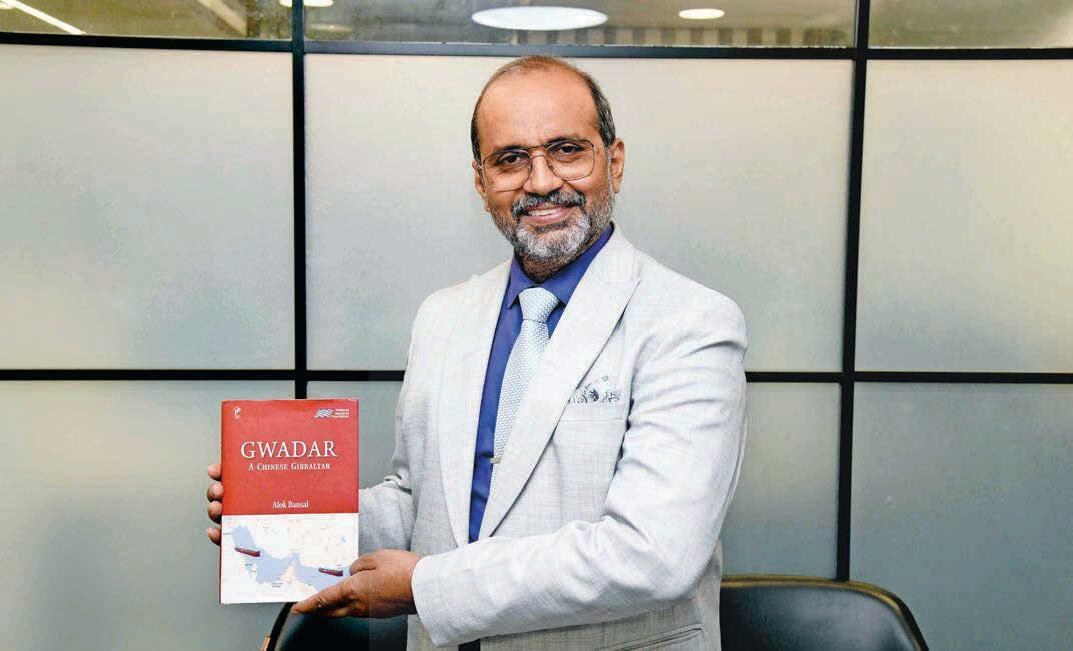
The Gwadar saga stretches back even further.
Pakistan had zeroed in on Gwadar to build a mega seaport in 1964, six years after acquiring it from Oman. The port would have the potential to accommodate super tankers and mother ships. And, that would be vital to attract the transit trade of central Asian nations. Moreover, it would allow Pakistan to keep an eye on the entire traffic to and from the crucial Persian Gulf.
But, work on the port began only in 2001. While the construction is almost complete, various associated projects are still in phases of development, including connectivity by road, rail and an airport. In 2013, the China Overseas Port Holding Company took over the leasing rights of the port and consequently Gwadar became a lynchpin in the ChinaPakistan Economic Corridor (CPEC).
Gwadar takes away the maritime advantage India enjoys over China in the Indian Ocean and embeds China in the northern Arabian Sea, thereby threatening India’s maritime security. Also, it adds to Chinese and Pakistani capability to threaten India’s energy security.
THE WEEK spoke to Captain Bansal on Gwadar. Edited excerpts:
Q Why do you call Gwadar a Chinese Gibraltar?
A Gibraltar controls access to the Mediterranean. This has been a British possession on the southern coast of Spain, another country. But Britain, by its presence in Gibraltar, controls any entry or exit from the Mediterranean towards the Atlantic. Similarly, and to some extent even more, because Gwadar is at the mouth of the Persian Gulf, China can control any traffic that is entering or exiting the Persian Gulf. Here we also need to understand that unlike the Mediterranean, which is open at both ends, the Persian Gulf can only be exited from one point—the Strait of Hormuz—and Gwadar is just outside the strait. So any maritime position there can monitor every vessel that is leaving or entering the Persian Gulf.
Diese Geschichte stammt aus der September 01, 2024-Ausgabe von THE WEEK India.
Starten Sie Ihre 7-tägige kostenlose Testversion von Magzter GOLD, um auf Tausende kuratierte Premium-Storys sowie über 8.000 Zeitschriften und Zeitungen zuzugreifen.
Bereits Abonnent ? Anmelden
Diese Geschichte stammt aus der September 01, 2024-Ausgabe von THE WEEK India.
Starten Sie Ihre 7-tägige kostenlose Testversion von Magzter GOLD, um auf Tausende kuratierte Premium-Storys sowie über 8.000 Zeitschriften und Zeitungen zuzugreifen.
Bereits Abonnent? Anmelden

Walking in pine forest can have the same effect as a prescription drug
INTERVIEW - KATHY WILLIS, professor of biodiversity, the University of Oxford, and author, Good Nature

MORE THAN A HELPING HAND
Maria Victoria Juan spent a lifetime healing wounded soldiers, and she can't think of anything she could have done better

Against all odds
Mohamed Raishan Ahmed was born with spinal muscular atrophy, which made him unable to sit, stand or walk. Recently, the Maldivian underwent a rare, complex surgery in India that now allows him to sit upright. At 23, the fact that he is alive is in itself an achievement. But he has gone beyond mere survival-with a pursuit of excellence

A pacemaker tale
From science fiction to reality, with a touch of southern Indian wisdom

Driving safe
Taxi drivers endure gruelling hours, cramped seats and relentless traffic, making them prime candidates for health issues like back pain, hypertension, diabetes and insomnia.

Good food, good life
From the moment of birth, we establish a relationship with food—a nourishing link that requires care and attention to stay healthy

POOR SLEEP IN MIDLIFE COULD AGE YOUR BRAIN FASTER
PEOPLE WHO EXPERIENCE SLEEP ISSUES, such as difficulty falling asleep or staying asleep in their 40s, may show more signs of brain ageing in late midlife. Poor sleep may accelerate brain atrophy that is associated with dementia.

BRAIN SCANS SHOW MINDFULNESS MEDITATION CAN REDUCE PAIN
CAN MINDFULNESS MEDITATION actually relieve pain, or is it just a placebo effect?

NON-SURGICAL OPTION TO EASE KNEE ARTHRITIS
A NEW, MINIMALLY INVASIVE procedure called genicular artery embolisation (GAE) can effectively reduce pain, improve quality of life and reduce progression of the disease and the need for knee replacement surgery in people with knee osteoarthritis.

EARLY ONSET DIABETES, BELLY FAT LINKED TO DEMENTIA
FACTORS SUCH AS DIABETES and belly fat in midlife can put you at risk of dementia and Alzheimer's disease later in life.